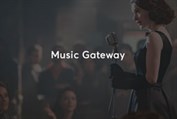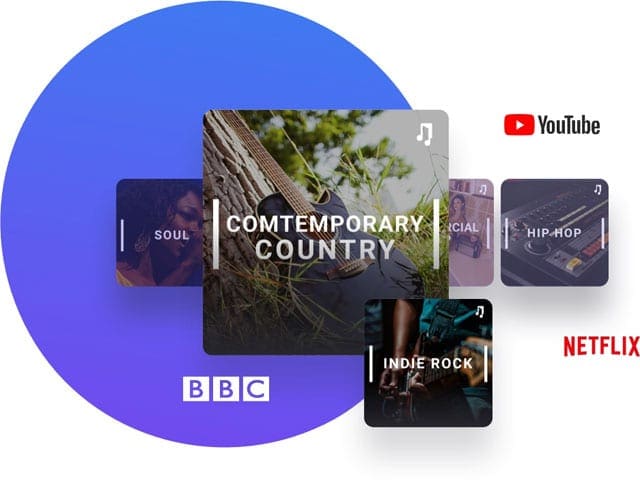Everything you need to know about
We are discussing what goes in to being management ready, developing a management mindset and having the tools and information ready to take matters into your own hands with an initiative. Having a good business management can be a make or break in the music industry and you’ll want to be informed when you make a decision who to work with down the line.
Artist managers in the music industry is something a large number of independent artists want without realising it’s not something they actually need at their current stage. These days, music industry management is a lot different to having a manager at a job you’ve just started, where they’ll ease you in and tell you everything you need to be doing from day one.
Why have a manager when there’s nothing to manage? How are you going to pay someone 10% when you’re not generating revenue yourself? When labels start bidding and everybody wants in, you’ll know that’s when you’ll need someone to step in and help sort things out. In this instance you’re employing them, but if your brand isn’t lucrative there’s no incentive for them to want to work with you.
Before we even talk about band management, we should be talking about what it really takes for the hype to kick off around an artist in 2019. Labels don’t go by potential anymore and to get picked up you’ll need to be creating noise on and offline by investing in quality music, being wise about what you put out and when as well as setting up endorsement deals with influencers in your niche field. Really, you need to be acting as your own manager and label.
When things have picked up and you’ve attracted the attention of record labels and booking agents, it’s time to look for a manager.
GENERAL MANAGEMENT SERVICES
What a good manager will help with is making informed business decisions, setting up deals and keeping you up to date on your schedule with good communication being key. When you employ a manager you’ll need to be able to trust their decisions and make sure you’re both on the same page.
A good place to start out for up and coming artists with some traction under their belts would be companies such as The GRAM Agency and The Famous Company.
These companies offer music management services for artists who are making a name for themselves and need help capitalizing on their growth. These services range from PR, Tour Management, Social Media management and overhaul, brand overhaul and identity consultations, project management and more.
You will need to pay a fee for these services as these companies are aimed at up and coming artists who need help paving the way to become viable for percentage-based management. Avoid a company who will take just anybody on. Their artist roster can speak volumes and they’ll need to maintain a strong level of credibility to hold close industry relationships with your potential partners and endorsers.
PERCENTAGE BASED MODELS – RISKS
If you’re on the lookout for a percentage based management relationship you’ll need to be careful who you go with and make sure it’s somebody with your best interests at heart. There’s a lot of smoke and mirror practices in the music industry, especially in the big leagues and it’s not uncommon for managers to want things such as romantic relationships kept quiet, or for romantic relationships to be orchestrated and staged to the public. You’ll need to have a think about where you draw the line between your morals and potential fame.
The reason a lot of managers like relationships kept quiet, is when it comes to male icons with a large female following. They have thousands of gen z and millennial-aged girls commenting on the artist’s social media posts with hopes the artist of their dreams will notice them.
The difference with gender, in this case, is that it’s widely frowned upon to flirt and pay a lot of attention to a happily taken man. Females are discouraged from the standpoint they don’t want to be branded a bunch of names I won’t mention, whereas males tend to not be discouraged when their favourite female artist is dating another guy. This isn’t always the case, but when it’s the difference between a manager’s 10% from an endorsement deal they’ll be sure to voice their concern.
In other instances, relationships and celebrity feuds are often staged for the incentive of cross-promotion, higher SEO results and free publicity they can bring. You’ll notice a lot of the time both artists are usually on the same label or parent label. A few instances of this are Eminem and MGK rap battle feud which consisted of the two writing and releasing diss tracks against each other which the public went crazy over and a staged relationship between Lil Xan and Noah Cyrus.
The pairs management were all for the publicity of Xan and Noah together as they were on the same label and Noah was releasing an album at the time. Lil Xan later blew the whistle that the whole thing was staged by the pairs label and management teams.
Fast forward a few months to when Xan is dating Annie Smith the whistle is blown once again via an Instagram story that management wants the couple’s relationship concealed to the public. This is an instance of an immoral practice and a business relationship not being carefully considered prior to a legal agreement being signed. This is an example of a situation that can be avoided by carefully weighing up your options.
TAKING CALCULATED RISKS
There’s a lot that a good manager can do for you as an artist and some of the smoke and mirror tactics used can actually be beneficial. This includes things such as making an artist that’s been trying to make it themselves for a long time seem brand new to the public or as if they’ve suddenly blown up overnight. Often new artists will be affiliated with bigger artists in song features to rack up streams and cross-promote to a wider audience.
Rebranding is also used frequently carried out for newly signed artists by managers or label brand consultants. This is so they will have greater appeal to who the label is trying to market the artist towards depending on their music and aesthetic.
All these tactics are widely used, but if this strategy isn’t carried out subtly it can have a damaging effect on the artist’s credibility. Watch how the public caught on to major label newcomer Baby Goth here.
These practices are common and there’s a lot more wool that managers and labels often try to pull over the public’s eyes. This isn’t to say that the whole music business is fraudulent as a lot of what they do is completely necessary.
BETTER PRACTICES
A good thing to remember is that as much as shady practices and under the table deals are made, there’s a lot to be said for the good being done in the music industry today. Organisations like Featured Artists Coalition, UK Music and the International Artist Organisation stand for better practices within the music industry from record labels. Their voice is heard by the government and policymakers in the UK, EU and USA. Being a member of an organisation such as the FAC will provide much-needed advice and support and artist to artist mentoring, as well as discounted membership to the Association of Independent Music. Being a member of AIM has benefits such as their exclusive BBC Music licensing deal, access to legal and expert advice and valuable marketing information from key industry players plus access to a wide array of networking events.
You should also check out The Musicians Union, they offer lots of legal advice as well as insurance for artists. You can be sure they’ll have your back if ever your music is taken without consent, you’re expected to play without getting paid or any other unfair practice within the music industry. They’re currently offering membership for £1 to potential members. There are so many organisations and unions to affiliate yourself with as a professional in the music industry you’re spoilt for choice.
It’s from this hustle and networking that you’ll meet label owners, managers, booking agents and people who can potentially get you to where you need to be while taking their % cut.
BOOKING AGENTS VS ARTIST MANAGERS – WHAT’S THE DIFFERENCE?
There’s often a little bit of confusion for indie artists on the differences between managers and booking agents. Booking agents are people who receive requests from promoters for potential shows and liaise the terms and conditions with the artist, or artists manager until an agreement is made.
They’re responsible for organising everything from transport, accommodation, technical riders and meals as well as booking the artist themselves. Generally, each section of the world is split into categories such as EU (Europe) NA (North America) SA (South America) and ANZ (Asia, Australia and New Zealand) with different booking agents working in each territory with their own knowledge and clout.
Good managers will usually communicate efficiently with both the artist and the agent to ensure all needs and requirements are met and a good agent will make sure all deposits are collected from event promoters before the date of the performance.
WHY MANAGEMENT MATTERS
A lot of indie artists don’t realise what goes into being a successful artist. I’ve heard artists come out with things and ask questions related to songs just blowing up of their own accord, artists getting called to play shows by venue owners in different countries, songs charting just by being on Soundcloud with no metadata and the list goes on.
Managers know the fine details and mechanics behind what is needed for the artist. They go all and beyond to secure the artist endorsement deals, interviews, appearances, meet & greet shows, and making sure the artist is up to date with their schedule.
They also have a large array of trusted connections and have the pull to get the artist in front of the right people. Having a manager ensures your career excels as they work in tandem with the label. They make sure your day to day activities are organised and your only responsibilities are to just show up and communicate.
It’s vital that when you have a manager you don’t randomly drop releases on Soundcloud or post previews of songs without clearing it first. You’ll be expected to keep everything under wraps unless your management gives you the all-clear to post on social media when it comes to music, tour dates and plans. Your manager will really know what’s best and it’s surprising how so many small decisions make up for the professional way major label / major indie artists are conveyed to the public.
There’s a lot of money and planning that goes into the what, where and when in release strategy and the marketing that publicises it. The marketing budget behind most releases is considerably larger than the production budget.
It’s good to think long term when planning your career while focusing on each stage at a time with a management mindset. Stage 1 could be an EP release with a hometown launch show, stage 2 could be a debut album with an exclusive single release on BBC Introducing while playing the Introducing stage at Reading & Leeds + a UK tour.
The idea is you work in stages and use waterfall project management strategy on a long term basis. If you have a manager they’ll be with you every step of the way on this.
FAMILIARISING YOURSELF WITH THE KEY ASSOCIATIONS
It’s a good idea to familiarise yourself with some of the key organisations and associations either for registering with yourself or for when you find management. These will help with everything from collecting publishing royalties to collecting rightsholder revenue from radio and TV performances and helping to secure synch licensing deals.
PRS – Performing Rights Society (UK)
PRS is the UK’s performing rights organization who collect publishing royalties owed to songwriters for the exploitation of their works. You can sign up as an artist to manage your own publishing or sign up as a publisher if you represent the publishing rights for at least 15 songwriters/works and have contracts to hand.
PRS has a network of partnerships spanning over 150 countries wide. Royalties are paid quarterly when due after they’ve been processed. If you sign a publishing agreement then your publishing company will register your works for you. Your publisher will also re-register any songs previously registered that they control the rights for.
PPL – Neighboring Rights Organisation (UK)
Neighbouring rights refer to a form of the copyright associated with commercially released recordings. A royalty is owed to both the rightsholder (artist or if signed a label) and to the artist/performer when a song is played on radio, TV or in public places such as restaurants, in-flight or in-store.
Although each country has its own neighbouring rights organization, an international mandate is usually signed so royalties can be collected worldwide. France is the only country to have two NRO’s and Germany is the only country to use label codes to collect royalties.
If you sign an international mandate with PPL you will need to decide what French organisation you’d like your revenue to be collected from when registering. You will also need to request a label code for German revenue once registration is complete. Make sure this is included in the metadata for digital recordings and is placed on the back of physical products distributed in Germany.
CONCLUSION
If you need help developing your merch range, getting more shows, landing publishing deals and all the other things that come with having a music career, you need a manager. Whether this is yourself, a development company or a business partner working on a percentage based model, it’s up to you which way you go.
It’s your responsibility to generate enough buzz around your music and brand to give enough incentive for a manager to want to work with you, so you’ll need to kick start things yourself. Hopefully, you’ve learned a thing or two by reading this and will continue to grow your knowledge and gain further experience in this ever-evolving industry that we call the music business. As long as you’re driven, respectful, you communicate efficiently and just show up you’re on the right track.
For aspiring managers or artists looking to secure a management deal, check out the MMF Music Managers Forum.
What this organisation provides is up to date information for managers on the state of the music industry with new trends and vital tips and tricks of the trade. Being affiliated with this organisation ensures you will have help and development for your profession.
You will also have the chance to network with like-minded people and potential partners. If you want to get more advice on how to self manage your career, get a manager, or become an artist manager yourself, it’s well worth checking the MMF out.
FAQ Section
Q1: How much money do managers take from artists?
Traditional deals are linked to a percentage of the Artist’s gross income and typically fixed at between 15 and 25 per cent. Some managers work with a variable rate such as a percentage of income up to £100,000, then an enhanced rate up to £500,000.
It’s standard practice for managers to claim reasonable expenses whilst working on behalf of an artist, which is either paid by the artist or recoupable from the gross revenue earned. It’s not normal for managers to invest money directly into their artists, but they normally seek to obtain revenue and investment through endorsement deals and signing recording and publishing contracts.
Q2: How do you become an artist manager?
- You need to understand all aspects of the music business, so experience is key.
- Build and establish a network of contacts and relationships across the industry
- Create a management company brand
- Network and find artists and bands of high potential and help them grow and earn revenue (build and establish a good roster of artists)
- Act professionally and always in the best interest of your artist
- Be super organised, because more than likely your artist won’t be
- Manage every aspect of the business and agree on a plan to develop the artist’s career
Q3: What do managers do?
The job touches upon all aspects of the music industry and can include: negotiating contracts, publishing contracts, live event management, bookings, dealing with venues and other writers, producers and managers. Planning the artist’s career strategy, advising on career decisions, managing the publicity and music promotion and in general helping them further their career through experience and sound decisions.
Q4: What is the average salary for a music manager?
This will range depending on the size of the company, level of the artist roster, but its reportedly understood that the average annual salary for a music manager is around £30,000 and will range from nothing in the early stages of an artist’s career (start-up business) to millions if you manage a mega pop star.
Q5: Secrets to becoming a highly successful artist manager
- You must understand every aspect of the music business leaving no stone unturned
- You must have an ear and eye for raw talent and a good judge of character
- You must be a superhero networker and have the ability to be liked by others
- You must be able to wear many hats, multi-tasking and be ultra organised
- You must be able to manage difficult situations and people effectively
Q6: Do talent managers need a license?
No, they don’t. Anyone can be a manager and for that reason, it’s vital that the artist makes a wise decision with someone they can trust. An artist should get themselves a good lawyer to oversee any agreement with a manager and ensure it’s fair for both parties.
Managers can join trade associations, with the leading organisation being the MMF (Music Managers Forum) which represents the best interests of managers. In the USA a professional license is required for employment agencies, including talent agencies.
Q7: What is a day to day manager?
This position may well be someone that an artist liaises with at an artist management company. They may not be the artist’s direct manager but a coordinator or assistant manager or project manager. Most management companies with a roster will have supporting roles that help with organisation, day to day tasks and campaigns. Duties could include regular communication with the artist, booking recording sessions, touring, publicity, merchandise, music publishing, liaising with their record label.
Q8: How do you become an entertainment manager?
If you are keen to become an entertainment manager, one of the best routes to take is through education with specialist companies like Berklee, BIMM, Access 2 Music and the ACM. These dedicated degree level courses provide a great grounding for the music business which will be needed.
The other route is much more entrepreneurial whereby you go and create your own company, do the research yourself and learn as you go and through success and mistakes, this can work well and be quicker but takes a huge level of commitment and sacrifice to achieve your goals. You must be strong in key skills such as communication, business practice, marketing, and organisational skills.
Q9: What does a talent acquisition manager do?
The definition of a talent acquisition manager is someone at a corporation or company that is dedicated to sourcing the very best talent from the marketplace, this can include headhunting people already at another company or attracting, recruiting, interviewing, and on-boarding employees into their organization. The functional role is normally held within a larger corporation and comes under the wing of the human resources (HR) department.
























